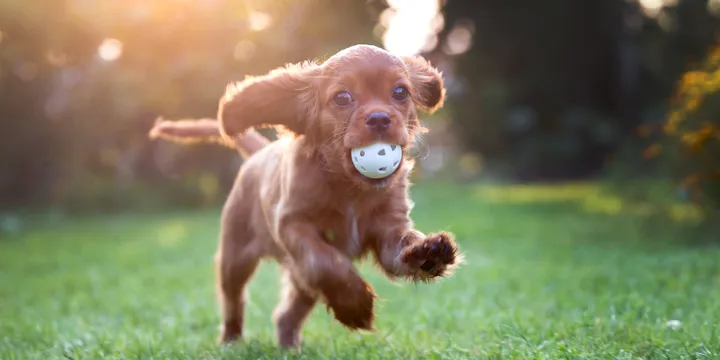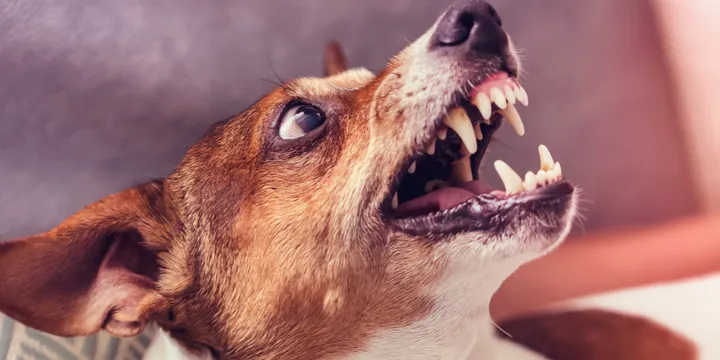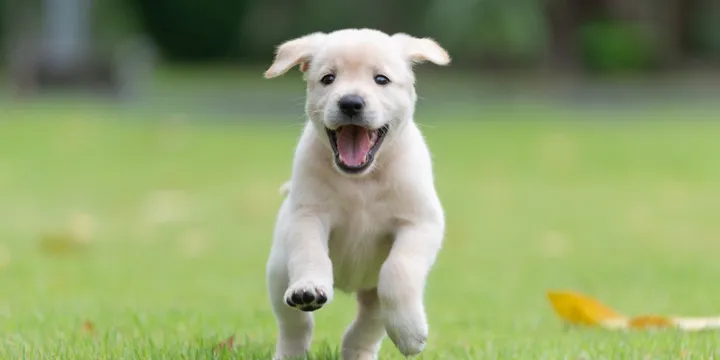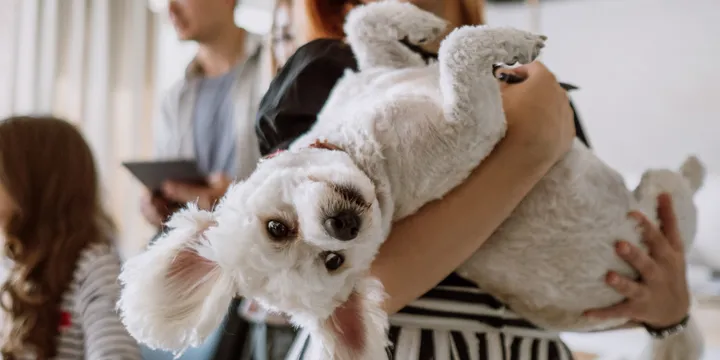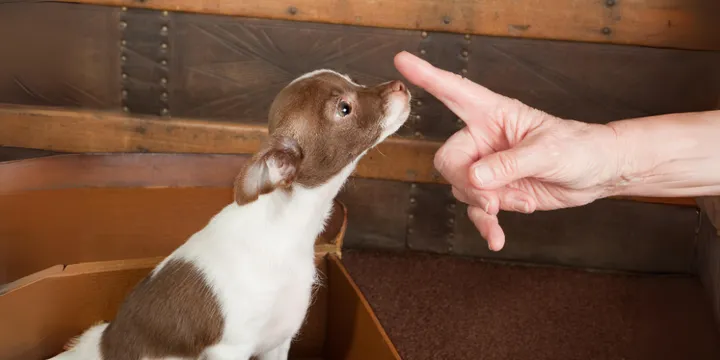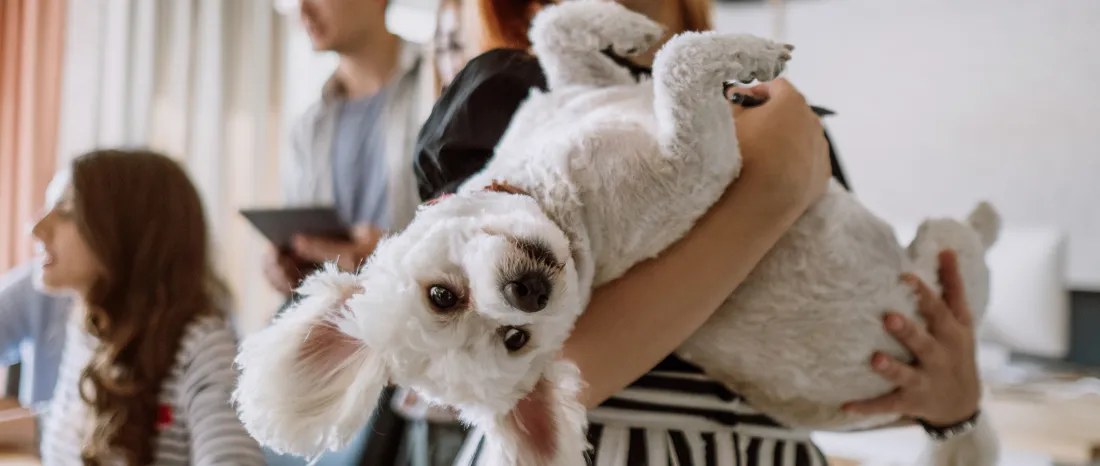
Tips for Raising a Friendly Dog

Quick Summary
- Helping puppies become friendly is important.
- Show your puppy to lots of people, places, and sounds before it turns twelve weeks old.
- Act quickly when socializing your puppy.
- Avoid trying to make your puppy a guard dog or encouraging excessive barking.
The Importance of Good Temperament in Dogs
Having a good temperament is very important for a pet dog. It greatly influences whether a dog can become a part of a family, bring joy to its owners, and avoid being abandoned. In various countries, including the United Kingdom, people generally like and trust dogs. However, sometimes dogs may behave aggressively, and these situations can often be prevented.
Common Assumptions About Dogs
Many people believe that dogs, due to domestication over the years, are naturally friendly to all humans. They think that if a dog is unfriendly, it must have been mistreated or poorly bred. However, this is not entirely true. While dogs are naturally friendly to their family members, extending this friendliness to everyone in society is more complex.

Understanding Your Puppy's Behavior
When someone stops to pet your puppy on the street, you want your puppy to respond warmly not just when it's small but as it grows up. However, puppies are genetically programmed to become wary of strangers at an early age, and there's a reason for that. In the wild, being too friendly could lead to danger. So, while puppies are naturally friendly with their family, being friendly to strangers requires some help.
Critical Period for Socialization
There's a critical period for socialization in puppies. During this time, puppies are open to new experiences and can easily bond with those who show them kindness. This period is crucial for a puppy to become well-adjusted and friendly. If a puppy is isolated or not exposed to new experiences during this time, it may become fearful and suspicious, which can be challenging to overcome.
How to Socialize Your Puppy for a Friendly Future
Now, let's delve into the practical aspects of socializing your puppy to ensure it grows up to be confident, friendly, and well-adjusted.
The Socialization Process
Socialization involves exposing your puppy to various experiences to help it become accustomed to different people, objects, sounds, and environments. Starting when your puppy is around eight weeks old, you have a short window of time – until about sixteen weeks – to introduce it to as many new experiences as possible.
Meeting People and Animals
Your puppy should meet people of all ages, sizes, and genders. Additionally, expose it to different animals, such as dogs and cats. This will help your puppy develop positive associations with a diverse range of individuals.
Exposure to Environmental Stimuli
Take your puppy for walks in various environments. Introduce it to different sounds like traffic, trains, and other common noises. Familiarize it with vehicles, objects, and situations it might encounter in everyday life.
Breed Differences and Individual Variances
While some dog breeds are known for their friendly temperaments, there are individual differences within breeds. Breeders may influence a dog's temperament, but socialization remains crucial. Even if a dog comes from parents with good temperaments, the environment and socialization efforts play significant roles.
The Time Factor in Socialization
Socializing your puppy quickly is crucial because the window for effective socialization starts closing around twelve weeks and is nearly shut by sixteen weeks. This means you need to be intentional and consistent in exposing your puppy to a variety of experiences during this limited timeframe.
Balancing Friendliness and Guarding Instincts
While you want your dog to be friendly, it's important to understand the limitations of training a dog to guard your home. Guard dogs are not selective, and trying to instill guarding behavior may lead to unnecessary risks. Encouraging barking, for instance, can create more problems than solutions.
Nurturing Your Puppy Through Growth and Maturity
Physical and Emotional Changes
As your puppy grows, you will notice significant changes in its size, strength, and overall physical appearance. Alongside these physical transformations, there will be corresponding emotional changes. Understanding these changes is essential for effectively nurturing your puppy.
Building Confidence Through Positive Experiences
Continuing the socialization process is crucial as your puppy grows. Positive experiences should be ongoing, reinforcing your puppy's confidence. Continue exposing your dog to a variety of environments, people, and situations to maintain its adaptability and friendliness.
Recognizing Limitations and Vulnerabilities
Despite socialization efforts, every dog has its limitations and vulnerabilities. Be aware of situations that may make your dog feel threatened or afraid. If your dog is injured or faces an unfamiliar experience, it may react defensively. Supervision, especially around small children, remains essential.
Guarding Against Aggression
While a friendly dog is desirable, it's equally important to prevent aggression. Fear is often the catalyst for aggression, so fostering an environment where your dog feels secure and supported is vital. Be cautious about attempting to train your dog to be a guard dog, as this may lead to unpredictable and potentially dangerous behavior.
Long-Term Commitment to Socialization
Socialization is not a one-time effort; it's a continuous process. Regularly expose your dog to new experiences and maintain positive interactions throughout its life. The benefits of effective socialization compound over time, contributing to a well-adjusted and confident adult dog.
Building Lasting Bonds and Positive Habits
Continued Positive Reinforcement
Maintain a consistent approach of positive reinforcement as your dog matures. Reward good behavior with treats, praise, and affection. This ongoing positive reinforcement encourages your dog to repeat desirable actions and strengthens your bond.
Communication and Understanding
Effective communication is key to a strong human-canine relationship. Learn to understand your dog's body language, cues, and vocalizations. Likewise, teach your dog basic commands for better cooperation and a smoother daily routine.
Regular Exercise and Mental Stimulation
Physical exercise and mental stimulation are essential for a dog's well-being. Regular walks, playtime, and interactive toys contribute to a healthy and happy adult dog. Engaging your dog's mind helps prevent boredom and undesirable behaviors.
Routine Veterinary Care and Nutrition
Ensure your dog receives routine veterinary check-ups, vaccinations, and a well-balanced diet. Regular health assessments and proper nutrition contribute to your dog's overall well-being and longevity.
Adaptation to Changing Needs
As your dog ages, its needs may change. Be attentive to any signs of discomfort, health issues, or behavioral changes. Adjust your care routine, exercise regimen, and feeding as necessary to accommodate your dog's evolving requirements.
Reinforcing Socialization Throughout Life
Continue exposing your adult dog to various social situations. Arrange playdates, meet other dogs, and expose your dog to new environments to maintain its sociable nature. Socialization remains important throughout your dog's life.
Navigating Challenges and Celebrating Milestones
Recognizing and Addressing Behavioral Challenges
Dogs, like humans, may encounter behavioral challenges. From excessive barking to separation anxiety, understanding the root causes of these behaviors is crucial. Employ positive training methods and, if needed, seek guidance from professional trainers to address challenges effectively.
Aging Gracefully - Care for Senior Dogs
As your dog enters its senior years, be attuned to the changing needs that come with aging. Regular veterinary check-ups become even more critical, and adjustments to diet, exercise, and overall care may be necessary. Provide a comfortable and nurturing environment for your senior companion.
Celebrating Milestones and Achievements
Celebrate the milestones and achievements in your dog's life. Whether it's mastering a new trick, reaching a certain age, or overcoming a challenge, acknowledging these moments strengthens the bond between you and your furry friend. Create positive experiences to cherish together.
Tailoring Activities to Individual Preferences
Each dog is unique, and their preferences and limitations will differ. Tailor activities and experiences to suit your dog's personality and physical condition. Some dogs may enjoy more playtime, while others may prefer leisurely walks. Understanding your dog's individual needs enhances the quality of your shared experiences.
Embracing Unconditional Love and Loyalty
Dogs offer unconditional love and unwavering loyalty. Embrace the joy and comfort they bring to your life. Establishing a strong bond through consistent care, positive interactions, and understanding fosters a relationship built on trust and affection.
About the Author

Kelly was born and raised in the city of Worcester, MA, and has always had a great love for dogs. Her parents, now retired, both worked as veterinarians when she was growing up, which sparked her interest in animal care early on.

